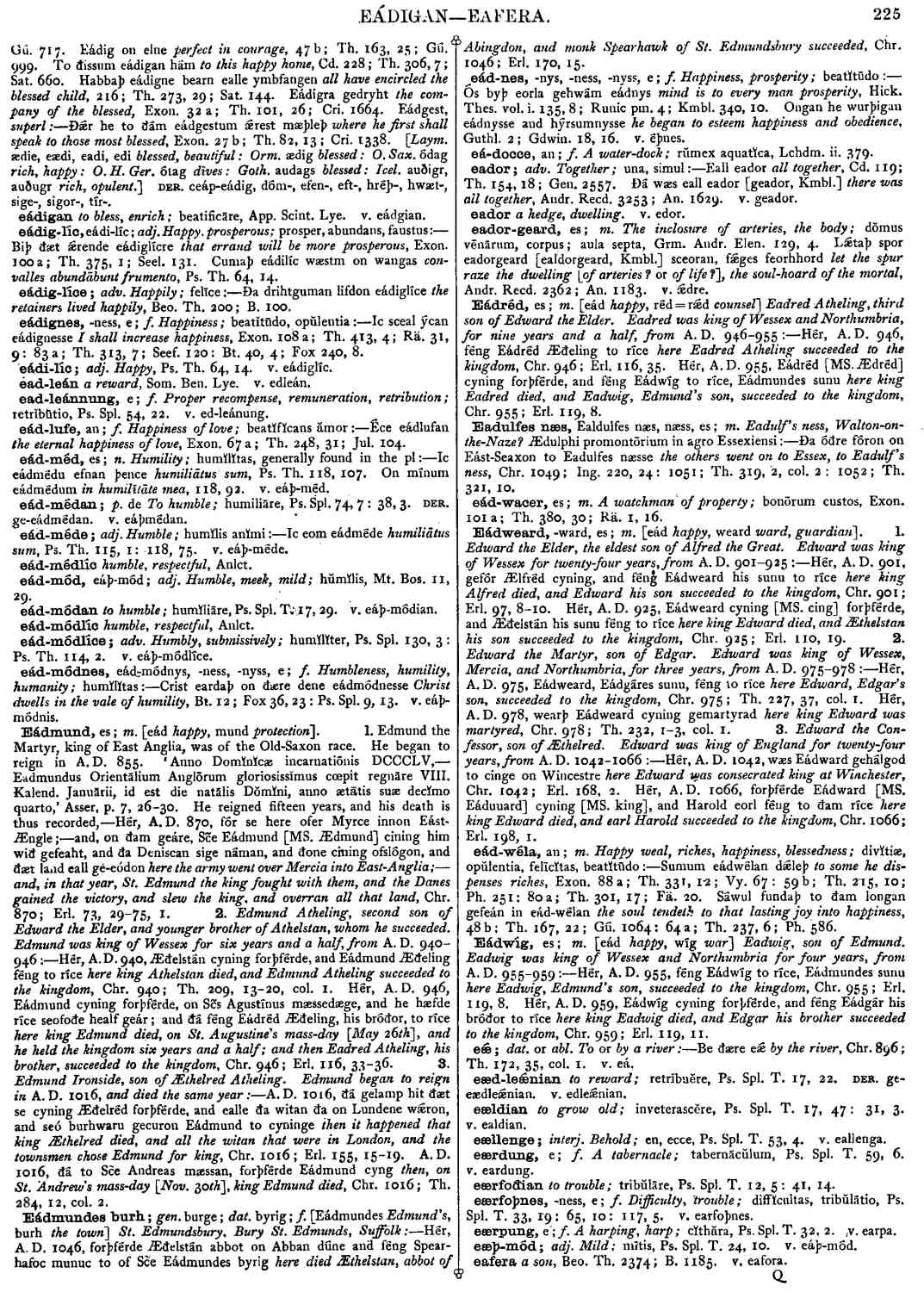Eádmund
- noun [ masculine ]
-
and, on ðam geáre, Sc̃ Eádmund [MS. Ædmund] cining him wið gefeaht, and ða Deniscan sige náman, and ðone cining ofslógon, and ðæt land eall ge-eódon
here the army went over Mercia into East-Anglia;—and, in that year, St. Edmund the king fought with them, and the Danes gained the victory, and slew the king, and overran all that land,
- Chr. 870 ;
- Erl. 73, 29-75, 1.
-
Hér, A. D. 940, Æðelstán cyning forþférde, and Eádmund Æðeling féng to ríce
here king Athelstan died, and Edmund Atheling succeeded to the kingdom,
- Chr. 940 ;
- Th. 209, 13-20, col. 1 .
-
Hér, A. D. 946, Eádmund cyning forþíerde, on Sc̃s Agustínus mæssedæge, and he hæfde ríce seofoðe healf geár; and ðá féng Eádréd Æðeling, his bróðor, to ríce
here king Edmund died, on St. Augustine's mass-day [May 26th"] , and he held the kingdom six years and a half; and then Eadred Atheling, his brother, succeeded to the kingdom,
- Chr. 946 ;
- Erl. 116, 33-36.
-
A. D. 1016, ðá gelamp hit ðæt se cyning Æðelréd forþférde, and ealle ða witan ða on Lundene wǽron, and seó burhwaru gecuron Eádmund to cyninge
then it happened that king Æthelred died, and all the witan that were in London, and the townsmen chose Edmund for king,
- Chr. 1016 ;
- Erl. 155, 15-19.
-
A. D. 1016, ðá to Sc̃e Andreas mæssan, forþférde Eádmund cyng
then, on St. Andrew's mass-day [Nov. 30th], king Edmund died,
- Chr. 1016 ;
- Th. 284, 12, col. 2 .
Bosworth, Joseph. “Eádmund.” In An Anglo-Saxon Dictionary Online, edited by Thomas Northcote Toller, Christ Sean, and Ondřej Tichy. Prague: Faculty of Arts, Charles University, 2014. https://bosworthtoller.com/8313.
Checked: 1